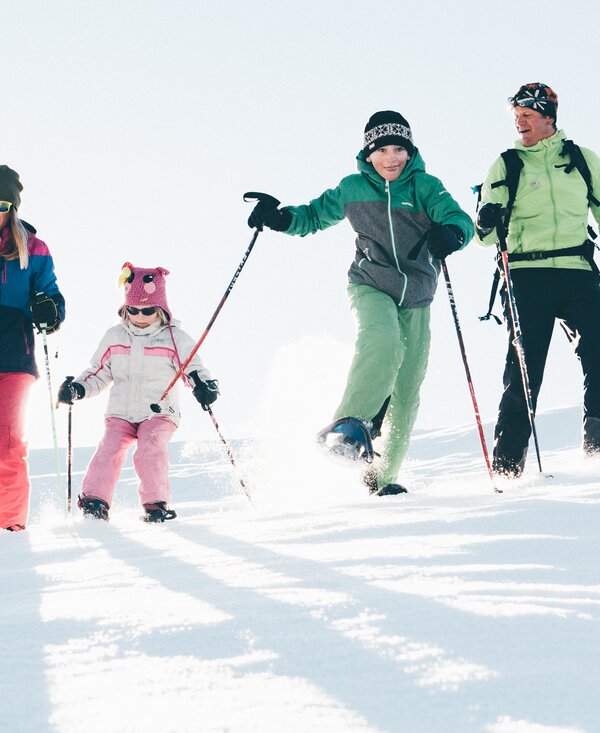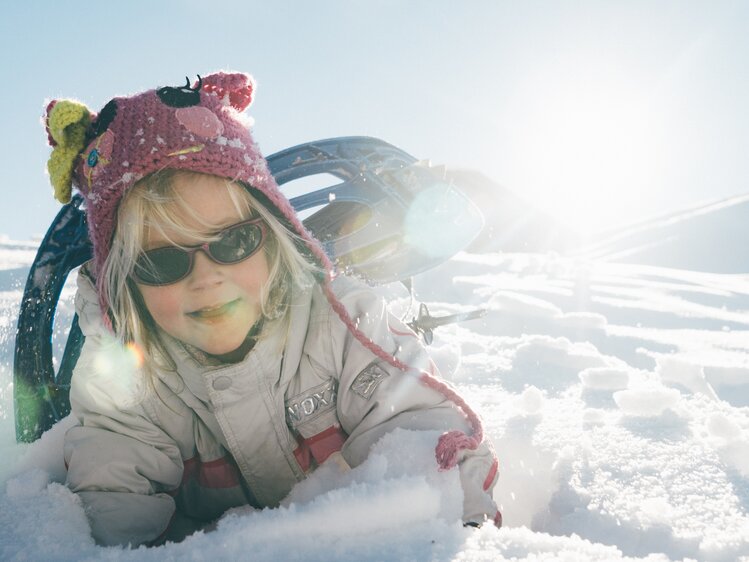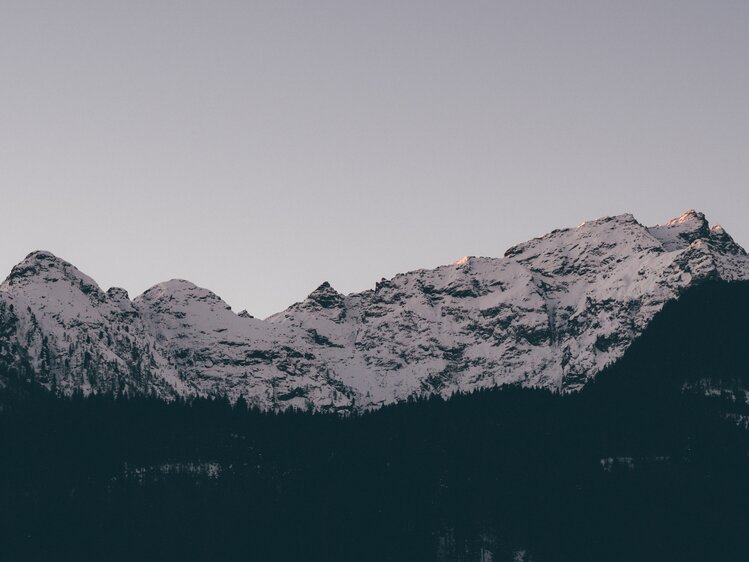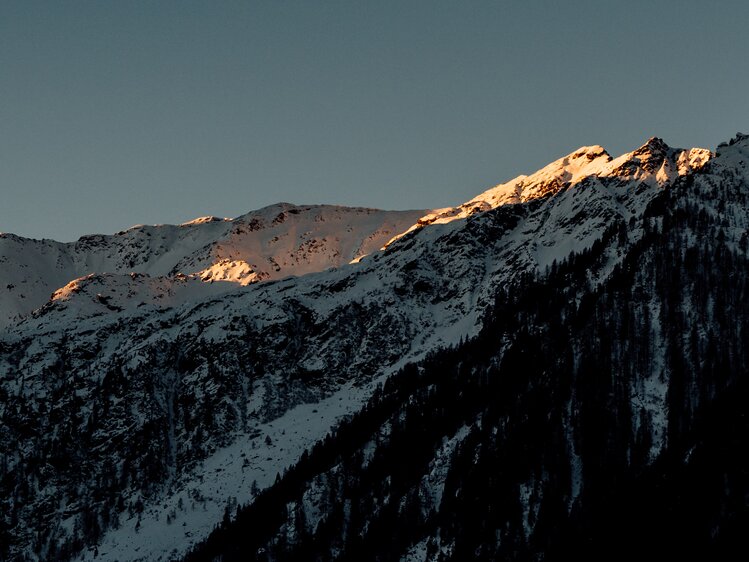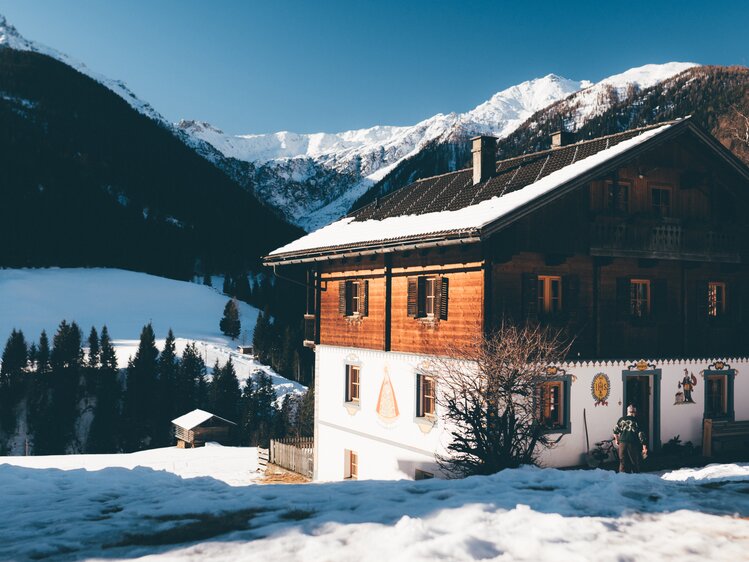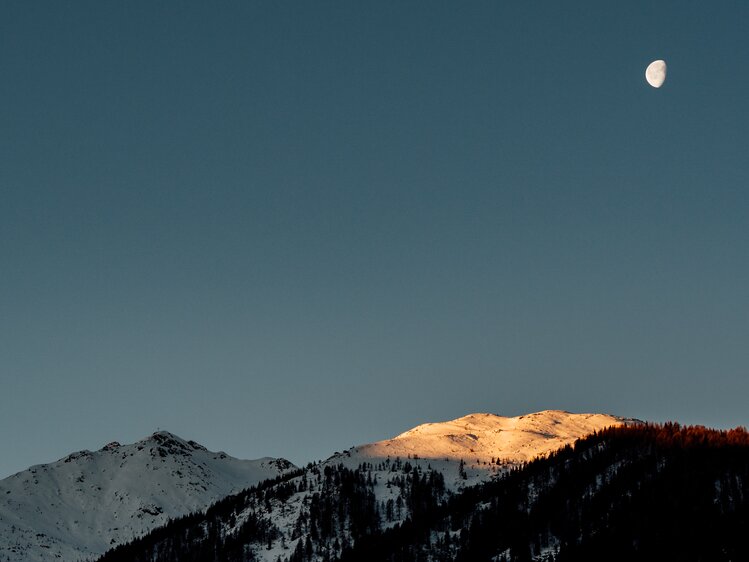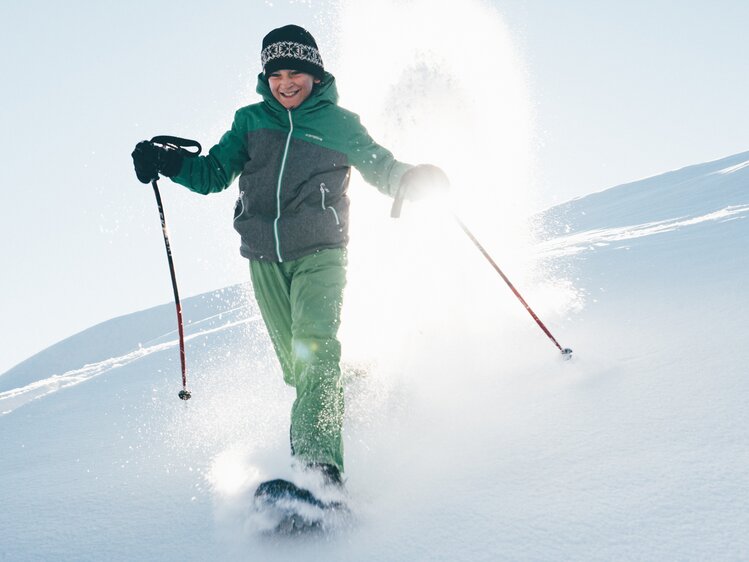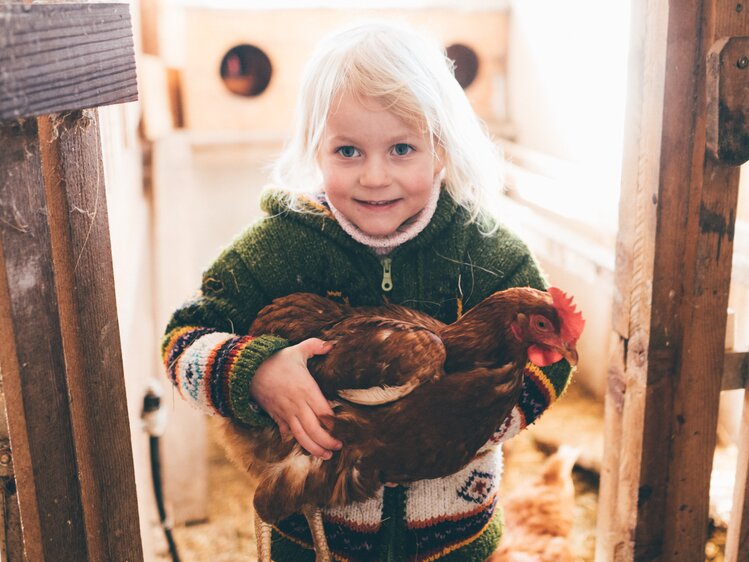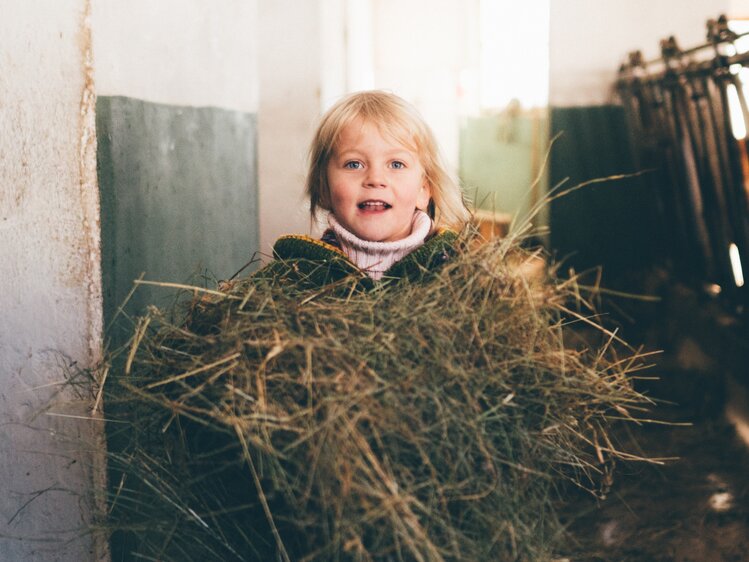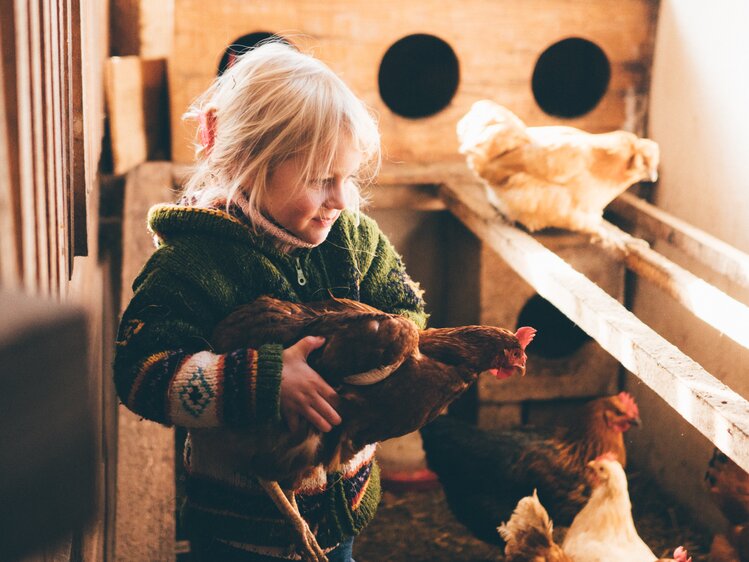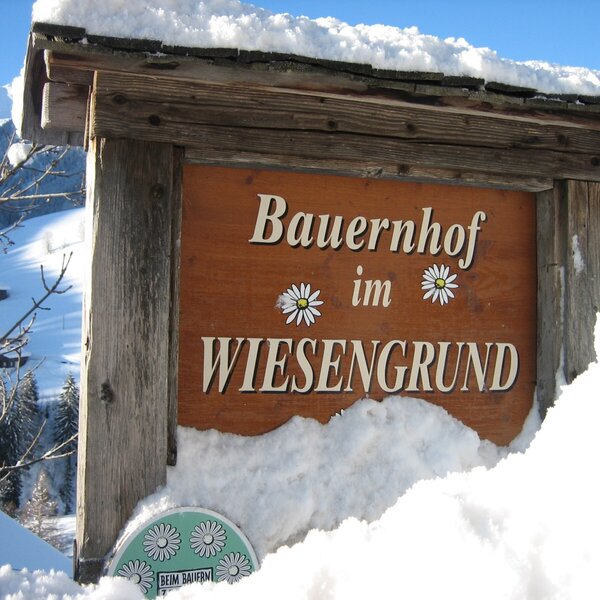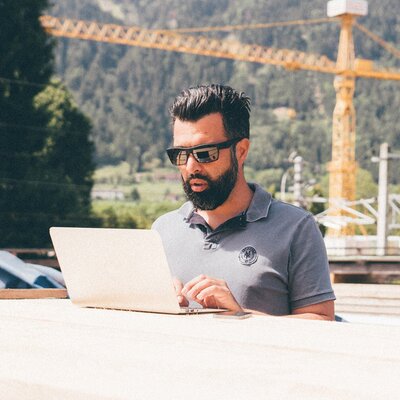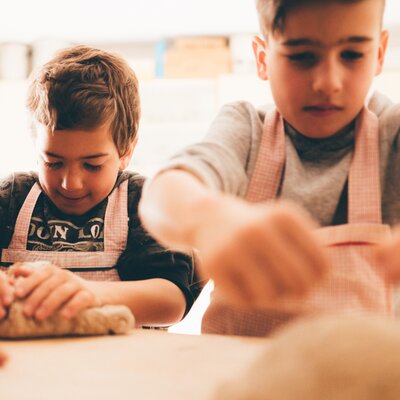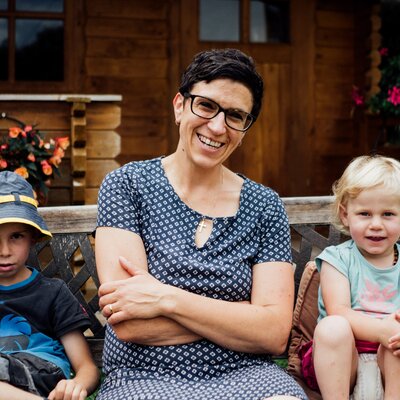Back to Maria Luggau. Where Carinthia borders East Tyrol, and in the neighboring 700-soul community of Obertilliach even James Bond ("Spectre") was allowed to hunt bad people, it is actually quiet and tranquil all year round. "Those who come to us are looking for something special, remote and small-scale," says Mario Lugger, explaining the motivation of his guests, which is easy to understand. The real luck of the Lesach Valley, this somehow self-sufficient existence away from the main travel routes, was also a curse from a tourist perspective for a long time. Far away from the urban centers, no big hotel castles, no tour operators who want to rush all-inclusive package tourists through the valley. But this flip side of the coin didn't bother the Lesach Valley locals, who simply carried on doing their thing and moved with the times. Very clever and a pleasant exception in the southernmost federal state under the red-white-red flag, which is generally not overrun by mass tourism.
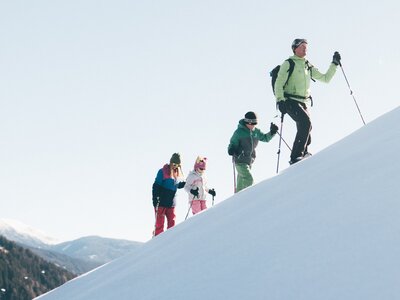
"Our guests were real wandering bears back then"
He fondly remembers the summer days in the mountain meadows when he is asked what impressions he associates with being a child on the farm. Or when young calves or goats were born, which young Mario liked very much. Especially the latter, so cheeky and impatient, in this behavior the lively youngster saw himself as if in a mirror. Later, he was allowed to go into the mountains with the guests, to show them the right way and thus occasionally escape the not always fun work on the farm. One day, an experienced hiking guest of the house even let him abseil a few meters over a rock. A formative experience. "That was the first time I had air under my butt, a great feeling," he recalls, slightly jubilant, of his time as a happy farm boy and a hitherto unknown feeling that left him wanting more.
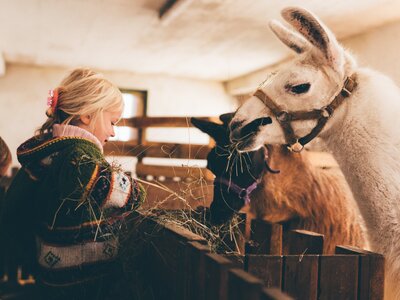
"I can do mountain farming, but I don't have to"
They are a proud people, the Lesachtal people. When you talk to them and listen to them, it comes across as genuine. The pithy accent that sounds more like Tyrol than Carinthia. The strong hands, the body tension. As I sit next to Mario and listen to his story, I feel weak, soft and uprooted. And I'm also a little envious. I don't usually feel that way. "In the past, we were often ridiculed and labeled as hillbillies, but the image has changed today," says the man from Luggau about the growing self-confidence in the valley. "Today, my children are proud of their origins, of their roots and they also like coming home at the weekend because they realize that two days at home do them good," he says hopefully about his offspring, as optimistic citizens who have no problem with the big, wide world, but still know where they belong. That doesn't sound at all like rural exodus or uncertainty about handing over the farm, which is of course a long way off at Wiesengrund.
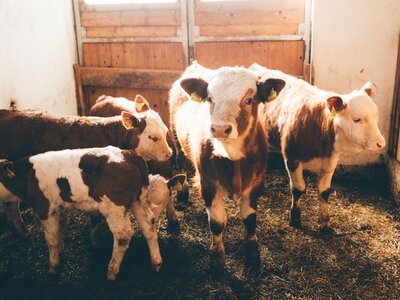
"The most important thing in life is good food"
In the valley of 100 mills, as the Lesach Valley is also known (there were actually up to 196 water-powered mills here), agriculture also has a long tradition. All the farmers here were once self-sufficient and grain was grown despite the unfavorable altitude (in the case of Maria Luggau around 1,200 meters above sea level). Wheat, rye, oats and barley covered the entire valley floor until the import of grain became easier and, above all, more affordable in the 1950s and 1960s, pushing the tradition of arable farming to the wall. Today, the Luggers from Wiesengrund still cultivate their own 40 by 40 meter plot of fertile land, which Mario works with a plough attached to a cable winch. Just old-style. He needs something like that, he says. Wild dog, I say.
"Food that grows here is of great importance to me"
Growing something yourself, watching it grow, then harvesting it and processing the grain in our almost 250-year-old mill and finally enjoying the delicious bread is such a high good that in today's society is only granted to farmers," he says proudly with a touch of awe. What he is describing here is the path of bread. An archaic cycle of self-sufficiency that non-farmers and urbanites are no longer familiar with. It is certainly a journey to the roots of taste, as the international Slow Food movement would call it. But UNESCO also felt that this should be protected and a few years ago awarded the title of "intangible world cultural heritage" to the bread culture of the high valley. A regular guest, of whom there are still many in the Wiesengrund, once said that the Lesach Valley was an ideal area for feng shui. The landscape seemed so healing to him. There must be some truth in that. Or is it just the peace and quiet and the lack of civilization noise? Yes, perhaps. But it's also the people and their vibrant local culture. Terra Sancta.
Stefan Heinisch
contentkumpanei.com, 34 Article(s)
